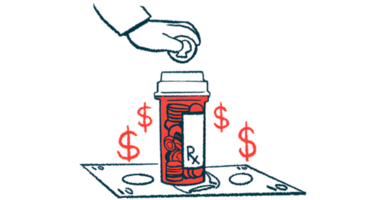Menopause Highlights the Different Ways Parkinson’s Affects Women

I initially started this column by writing about my menopause journey and trying to add some levity to it. This was after my friends jokingly “welcomed me to the party.”
However, as I continued writing and researching, I realized there may be more to the menopause story when it comes to the estimated 3 million women worldwide diagnosed with Parkinson’s disease.
Women are different
Women with Parkinson’s are not “little men” with Parkinson’s. We are different in many ways, but treatment plans don’t always address some important differences, including hormones. The hormonal fluctuations women experience during pregnancy, menstruation, and menopause, for example, may present specific challenges for those with Parkinson’s. This includes the possibility of a delayed Parkinson’s diagnosis, because some symptoms can overlap with the symptoms of menopause.
A review article published in 2019 in the Journal of Parkinson’s Disease noted that, “Although women diagnosed with PD are a sizable portion of the PD population, their specific needs are still partially overlooked.”
The authors observed that men and women experience the disease differently, though more research is needed to understand why.
“In line with this,” they wrote, “governmental and private initiatives are strongly encouraging scientists and clinicians to have special consideration for gender characterization and sex-specific issues in PD.”
Parkinson’s and menopause
Navigating the emotional and physical rebellion of menopause while also managing Parkinson’s symptoms is challenging. Studies have investigated the benefits and risks of hormone replacement therapy in women with Parkinson’s, but research is limited.
For me, sleep, diet, and exercise are essential. So was finding the right physician to help me navigate this transitional phase. I am learning to balance managing my life and my disease. They are not mutually exclusive but intricately woven together.
It can be difficult to determine if my symptoms are stemming from menopause or Parkinson’s. At times, I feel like my Parkinson’s is creeping up on me while hitching a ride with menopause. Or is it the other way around? Maybe my hormones are reducing the effectiveness of my medications.
There is light at the end of one tunnel: While my Parkinson’s symptoms won’t go away, the menopause symptoms should improve with time.
For now, there are still more questions than answers, but I will continue to learn and participate in research. Awareness of how Parkinson’s affects women is increasing, and the research is headed in the right direction.
I am grateful for those who pioneer initiatives such as Women and PD Talk, which advocates for women with Parkinson’s and provides a valuable resource about gender disparities.
Because April is Parkinson’s Awareness Month, I want all of the female Parkinson’s warriors to remember that you are brave and unique. And to the men with Parkinson’s that fight alongside us, a sincere thank you.
***
Note: Parkinson’s News Today is strictly a news and information website about the disease. It does not provide medical advice, diagnosis or treatment. This content is not intended to be a substitute for professional medical advice, diagnosis, or treatment. Always seek the advice of your physician or another qualified health provider with any questions you may have regarding a medical condition. Never disregard professional medical advice or delay in seeking it because of something you have read on this website. The opinions expressed in this column are not those of Parkinson’s News Today or its parent company, Bionews, and are intended to spark discussion about issues pertaining to Parkinson’s disease.







Christine
Hi Lori,
Thank you for this post. I have always sworn that my PD symptoms started the day I started menopause. I too have wondered if some things are PD or just my stage in life. After about 2 years of suffering dreadful hot flashes, I couldn't take it anymore and begged my doctor for HRT. She gave me a very low dose, and wow - it made such a difference! Not only did it help with hot flashes, I slept better and felt like I was thinking more clearly. I never want to stop taking it! LOL.
Thank you for the links to the talks as well. Good luck on your journey!
Lori DePorter
Thank you for sharing. Hormones are different for everyone and challenging to manage.